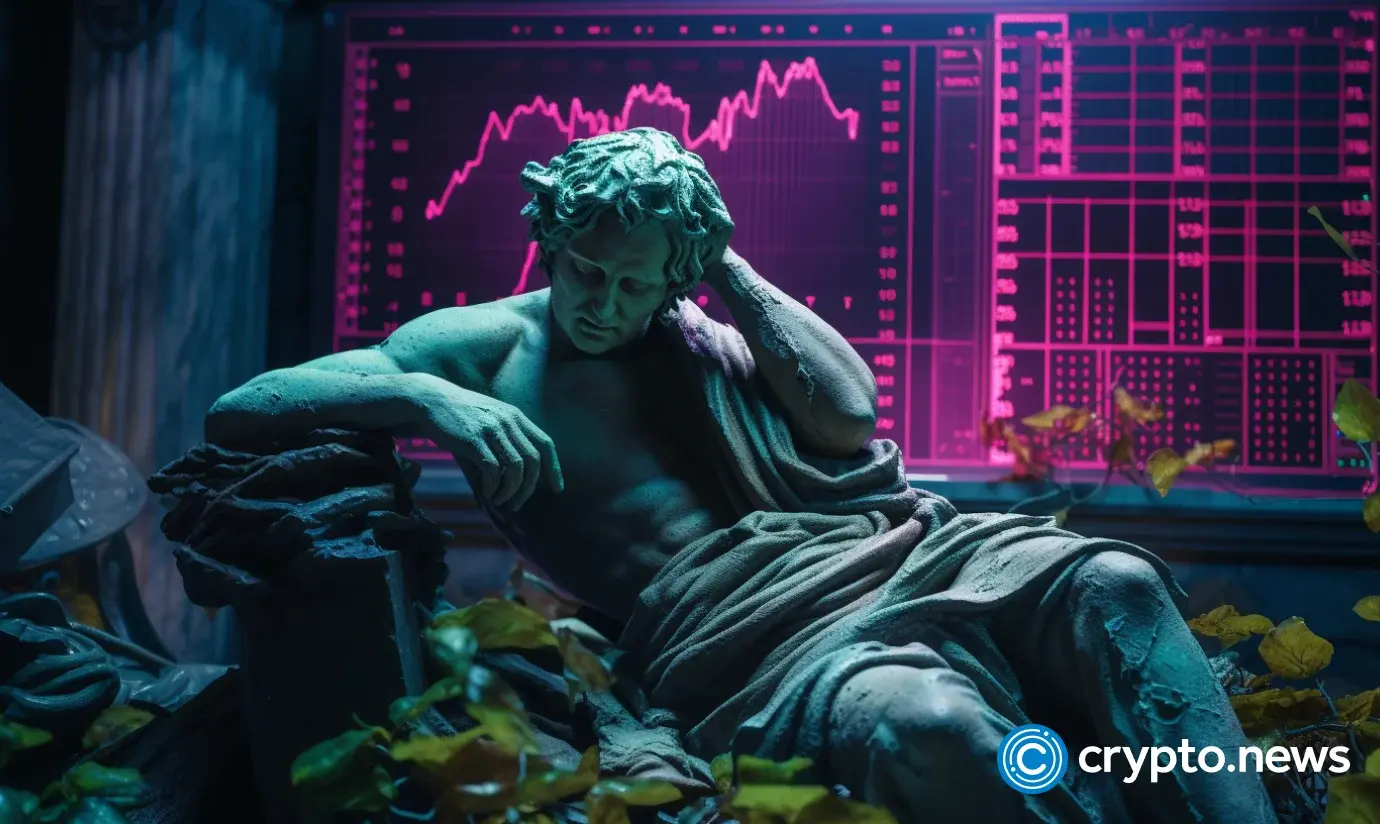FTX is seeking court approval for a new claims process that could affect creditors from 49 jurisdictions where crypto is banned or restricted. In a new filing shared by FTX creditor advocate Sunil, the bankrupt crypto exchange has requested that the court approve a framework for addressing claims from 49 “potentially restricted foreign jurisdictions,” which include countries where cryptocurrency is banned or subject to legal restrictions……..Continue reading…
Source: Crypto News
.
Critics:
Cryptocurrency investment firms with assets still held on FTX after its bankruptcy include Galois Capital and Galaxy Digital. Cryptocurrencies experienced swings and declines in value as news of FTX’s collapse first emerged in early November: Tether dropped below its peg price of $1.00 to $0.97 and Bitcoin sank to its lowest price in two years. Share prices for publicly traded cryptocurrency companies declined. The price of Solana, which was affiliated with Bankman-Fried, declined as well.
The crisis at FTX has inspired an increase in withdrawals from other exchanges. A decline in the value of Cronos, the token of exchange Crypto.com, triggered fears of the potential for a collapse similar to that of FTX and spurred withdrawals from the platform. CEO Kris Marszalek provided assurances that the firm was liquid and that it did not use Cronos in a manner similar to the way FTX used FTT.
Bloomberg reported that the collapse of FTX exacerbated institutional skepticism of cryptocurrencies as an asset class. In December, it emerged that FTX had secretly invested in The Block, a cryptocurrency news firm, and to fund an LLC its CEO Michael McCaffrey used to buy an apartment. Its staff said they had no knowledge of the investments. McCaffrey then resigned.
Investment manager and short selling specialist Jim Chanos predicted in November 2022 the collapse of FTX would lead to “increased scrutiny and regulation” over cryptocurrencies. Chanos criticized the cryptocurrency sector as “designed to extract fees from really unsuspecting investors”. Richard Handler, CEO of American financial firm Jefferies Group, tweeted on November 10 that he had attempted to meet with Bankman-Fried in July and again in September, as he perceived the FTX CEO was “in over his head”.
Handler stated that Bankman-Fried did not respond to the emails sent from Jefferies staff on Handler’s behalf. The sudden collapse of FTX has been compared to the bankruptcy of Lehman Brothers in publications such as The New York Times and the Financial Times. Lawrence Summers acknowledged the comparisons to Lehman and further compared the collapse to the Enron scandal, caused by fraud perpetrated by Enron executives.
Rostin Behnam, the Chairman of the Commodity Futures Trading Commission, called for Congress to grant the organization more power to regulate cryptocurrencies. The financial impact of the collapse having reached beyond the immediate FTX customer base, financial industry executives said at a Reuters conference that “regulators must step in to protect crypto investors.” Technology analyst Avivah Litan commented on the cryptocurrency ecosystem that “everything…
Needs to improve dramatically in terms of user experience, controls, safety, [and] customer service.” Risk management firm Titan Grey published a primer on the commencement and early motions practice of the FTX chapter 11 case, analyzing issues such as creditor privacy, relief from the automatic stay, proposed differential treatment of customers from other creditors, and others. Following the collapse of FTX, the Royal Bahamas Police Force launched a criminal investigation into the company.
Anonymous sources cited by Bloomberg said that the office of the United States Attorney for the Southern District of New York had begun an investigation into FTX’s collapse as of November 14, 2022. The United States House Committee on Financial Services announced it plans to conduct hearings in December on the collapse of FTX, and committee leaders said they would seek testimony from Bankman-Fried.
According to anonymous sources cited by The Information, some venture capital firms are considering suing Bankman-Fried. On December 13, 2022, FTX founder and CEO Sam Bankman-Fried was charged by the US attorney’s office for the southern district of New York with fraud, conspiracy to commit money laundering, and conspiracy to defraud the US and violate campaign finance laws.
After being extradited from the Bahamas, Bankman-Fried was released on a $250 million bond and ordered to remain under house arrest at his parents’ home in Palo Alto, California. He was arraigned in federal court in Manhattan on January 3, 2023, and entered a plea of not guilty to all counts. Judge Lewis A. Kaplan set the trial date for United States v. Bankman-Fried for October 2, 2023, saying he might move it “forward or backward a day or two.”
Meanwhile, Gary Wang, co-founder of FTX, and Caroline Ellison, who had served as Alameda’s CEO, pleaded guilty to multiple charges and began cooperating with federal prosecutors. Former FTX executive Ryan Salame pleaded guilty to both a campaign finance law violation and a charge of operating an unlicensed money transmitting business. On May 28, 2024, Salame was sentenced to 7.5 years in prison and ordered to pay more than $5 million in restitution and forfeit an additional $6 million.
Salame began serving his sentence in October 2024. On September 24, 2024, Caroline Ellison was sentenced to two years in prison on charges including wire fraud and money laundering. While Judge Kaplan acknowledged the assistance she’d provided to prosecutors, he said her cooperation should not be a “get out of jail free card.” FTX’s former engineering director, Nishad Singh pleaded guilty to six different charges, including three counts of conspiracy to commit fraud.
Singh is a childhood friend of Bankman-Fried’s brother and worked at Alameda Research before being brought into FTX. On October 30, 2024, Singh was sentenced to time served and three years of supervised release based on his cooperation with prosecutors and Judge Kaplan’s view that Singh’s role in the fraud was “much more limited” than his colleagues. On November 20, 2024, Gary Wang was sentenced to time served and three years of supervised release, with Kaplan saying Singh was “entitled to a lot of credit” for his cooperation with prosecutors.
In August 2024, FTX was ordered by a US court to pay $12.7 billion in compensation to former customers and fraud victims. The Commodity Futures Trading Commission called this the “largest such recovery” in their history. The sum consists of $8.7 billion in restitution, and $4 billion in disgorgement. On October 7, 2024, U.S. Bankruptcy Judge John Dorsey approved the FTX bankruptcy plan which repays customers with balances less than $50,000 their full balance, but with cryptocurrencies valued as at the date of the collapse.
FTX sponsored a number of sports teams and organizations. Deals included the naming rights to the Miami Heat’s basketball stadium, renaming it FTX Arena, a partnership with Major League Baseball to place the FTX logo on the uniforms of umpires, and a deal with Mercedes-AMG Petronas F1 Team to add the FTX logo to their cars and merchandise.The professional esports organization TSM also had a naming rights deal with FTX, thus the organization became TSM FTX.
Other sponsorships included the title sponsorships of the first season of MLB Home Run Derby X, and the title sponsorship of the tournaments FTX Road to Miami and FTX Crypto Cup as part of the Champions Chess Tour 2022. Following the bankruptcy of FTX in November 2022, Mercedes-AMG F1, TSM and the Miami Heat cut ties with the company, with the latter also announcing that they would be seeking a new naming rights partner for the FTX Arena. FTX held talks with American singer-songwriter
Taylor Swift starting in the fall of 2021 regarding a $100 million sponsorship deal but negotiations were broken off the following spring without a deal being reached.







Leave a Reply